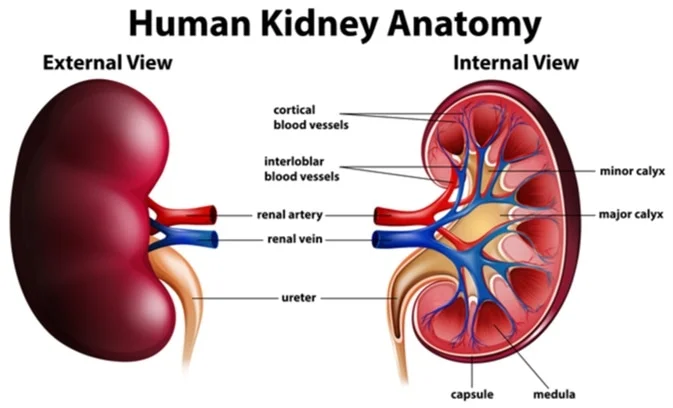Kidney disease is often referred to as a “silent killer” because it can progress unnoticed until it reaches an advanced stage. Awareness of the early signs and understanding the available treatment options are crucial for prevention and effective management. In this blog, we’ll explore the importance of early detection, the warning signs to look out for, and the treatment options available for kidney disease.
The Importance of Kidney Health
The kidneys are vital organs responsible for filtering waste products and excess fluids from the blood, balancing electrolytes, and producing hormones that regulate blood pressure and red blood cell production. When the kidneys fail to function properly, it can lead to severe complications, including cardiovascular disease, bone disorders, and even kidney failure.

Early Signs of Kidney Disease
In the early stages, kidney disease may show little to no symptoms. However, there are subtle signs that can indicate something is wrong:
- Fatigue and Weakness: When kidneys fail to filter toxins effectively, it can lead to fatigue and reduced energy levels.
- Swelling (Edema): Puffiness around the eyes, swollen hands, feet, or ankles due to fluid retention.
- Changes in Urination: Increased frequency, especially at night, or decreased output. Urine may also appear foamy, discolored, or contain blood.
- High Blood Pressure: Hypertension can both cause and result from kidney disease.
- Persistent Itching: Accumulation of toxins in the blood may cause dry and itchy skin.
- Nausea and Loss of Appetite: Build-up of waste in the blood can lead to these symptoms.
- Difficulty Concentrating: Impaired kidney function can cause cognitive difficulties due to the accumulation of toxins.
If you notice any of these signs, it’s essential to consult a healthcare provider promptly for evaluation.
Diagnosis
Detecting kidney disease early requires medical evaluation, including:
- Blood Tests: Measuring creatinine and urea levels to assess kidney function.
- Urine Tests: Checking for protein, blood, or other abnormalities.
- Imaging Studies: Ultrasound or CT scans to detect structural issues.
- Biopsy: In some cases, a kidney biopsy may be required for diagnosis.
Treatment Options
Treatment depends on the stage and cause of kidney disease. Early intervention can slow progression and improve quality of life.
- Lifestyle Modifications:
- Adopting a kidney-friendly diet (low in sodium, protein, and phosphorus).
- Managing blood pressure and blood sugar levels through exercise and medication.
- Quitting smoking and limiting alcohol intake.
- Medications:
- ACE inhibitors or ARBs to control blood pressure.
- Medications to manage anemia, bone health, and swelling.
- Dialysis or diuretics to remove excess fluids if needed.
- Dialysis:
For advanced kidney failure, dialysis helps remove waste, toxins, and excess fluids from the blood. It can be done through hemodialysis or peritoneal dialysis. - Kidney Transplant:
For patients with end-stage kidney disease, a kidney transplant is often the best treatment option. It involves replacing the diseased kidney with a healthy one from a donor.
Preventing Kidney Disease
Prevention is always better than treatment. Here are steps to keep your kidneys healthy:
- Stay hydrated by drinking adequate water.
- Maintain a balanced diet rich in fruits and vegetables. Learn more about eating right while fighting kidney disease.
- Exercise regularly and maintain a healthy weight.
- Avoid overuse of NSAIDs and other nephrotoxic medications.
- Get regular health check-ups, especially if you have risk factors like diabetes, hypertension, or a family history of kidney disease.
Final Thoughts
Kidney disease is a serious condition, but early detection and appropriate treatment can make a significant difference. By staying informed and vigilant about the early signs, you can protect your kidney health and improve your overall well-being. If you or someone you know is at risk, don’t wait—schedule a check-up today and take charge of your kidney health.
Together, we can raise awareness and fight kidney disease.
